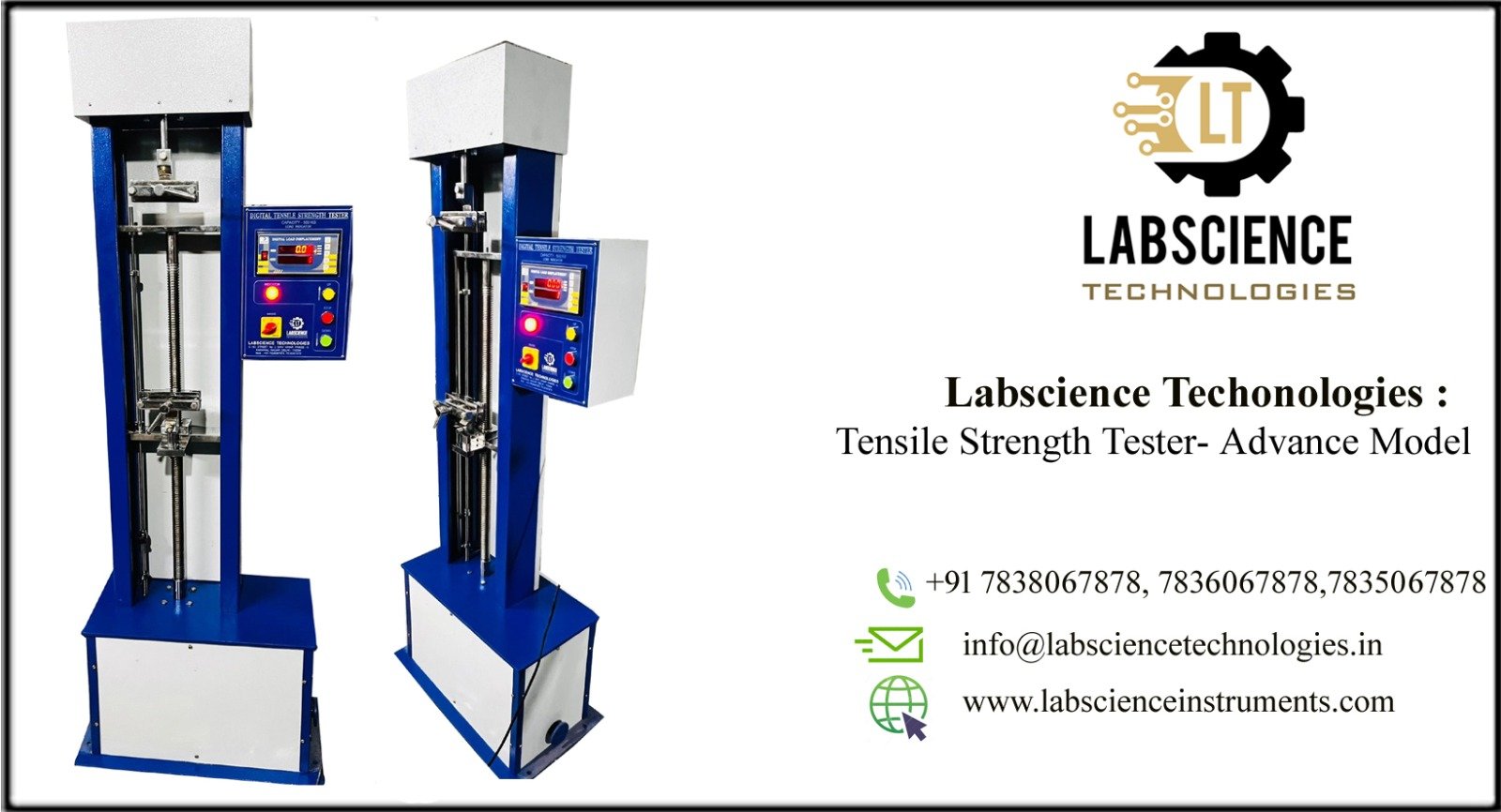Labscience: Tensile Testing Machine
The tensile tester machine is built to test the mechanical properties of materials by subjecting them to uniaxial tension. This type of testing is essential for determining how materials will perform under stress, providing vital information for material selection, product design, and quality assurance. The machine operates by gripping a material specimen between two clamps, then slowly pulling the specimen apart until it breaks. The force applied and the material’s response are recorded and analyzed to evaluate its mechanical characteristics.
Tensile tester machines are widely used across various industries, including:
Plastics: To assess the tensile strength, elongation, and modulus of elasticity of plastic materials, ensuring they meet quality standards for products like films, packaging, and automotive parts.
Metals: For testing the strength and ductility of metals used in construction, aerospace, and manufacturing, ensuring they can withstand the required loads and stresses.
Textiles: To evaluate the tensile properties of fibers, yarns, and fabrics, ensuring durability and performance in clothing, upholstery, and industrial textiles.
Rubber and Elastomers: To measure the elongation and tensile strength of rubber materials used in tires, seals, and gaskets, ensuring they can perform under various conditions.
1. Load Capacity
Range: 1 kN to 1000 kN (kilonewtons), depending on the model
Resolution: Typically 0.1 N (newtons) or better
Accuracy: ±0.5% of the measured load or better, in compliance with ASTM E4 or ISO 7500-1 standards
Load Cells: Interchangeable load cells with various capacities to accommodate different testing ranges
2. Crosshead Speed
Range: 0.001 mm/min to 1000 mm/min (millimeters per minute)
Speed Control: Servo-controlled motor for precise speed adjustment
Speed Accuracy: ±0.1% of the set speed
Return Speed: Up to 1500 mm/min for rapid return to the starting position after testing
3. Test Space
Vertical Test Space: Adjustable, typically from 500 mm to 1500 mm, depending on the machine configuration
Horizontal Test Space: Width typically ranges from 400 mm to 800 mm between columns (for dual-column models)
Crosshead Travel: Determined by the machine’s frame height, ranging from 500 mm to 1500 mm or more
4. Grips and Fixtures
Standard Grips: Wedge, pneumatic, or hydraulic grips for different material types (metal, plastic, rubber, textiles)
Specialized Fixtures: Available for specific applications, such as grips for thin films, wire, or ropes
Jaw Faces: Interchangeable, with various surface textures to minimize slippage and damage to the specimen
5. Extensometer (Optional)
Type: Contact or non-contact extensometers available
Gauge Length: Typically 10 mm to 200 mm
Strain Range: Up to 1000% elongation, depending on the material
Accuracy: ±0.5% or better, compliant with ISO 9513 or ASTM E83 standards
6. Control and Data Acquisition
Control System: Microprocessor-based or computer-controlled with intuitive software interface
Display: Digital display for real-time load, extension, and other parameters
Data Acquisition Rate: Up to 1000 Hz or higher, for capturing detailed test data
Software Features:
Test setup and control
Real-time graphing of stress-strain curves
Data logging and export in various formats (CSV, Excel, PDF)
Automated calculation of mechanical properties such as tensile strength, modulus, yield point, and elongation
Customizable test templates for standardized testing procedures
Kindly fill this form to demand a call-back to from our client support boss with esteeming and details.
Call our Specialists for the Best Deal
+91 7838067878
Call Now
+91 7838067878

